Exceptional find: a silver communion set and a small fortune hidden in the ground have been unearthed in a research project by the National Archaeological Institute (Nemzeti Régészeti Intézet) near Lake Tisza.
Remains of a Benedictine abbey
Experts from the National Archaeological Institute of the Hungarian National Museum’s Centre for Public Collections carried out microregional research near Lake Tisza, the institute announced on its Facebook page. According to official information, the remains of a medieval Benedictine abbey were discovered in 2023.
This year’s excavation has also unearthed a silver communion set (chalice and wafer holder) dating back to the 14th century.
Moreover, a treasure trove of 70 silver coins of the Viennese fillér (small coins) has been unearthed in the region.
According to the institution, one of the pillars of the ten-year research plan of the National Archaeological Institute is to identify all the sites in the country within the framework of the Archaeological Topography Programme (Régészeti Topográfiai Program).
To this end, micro-regional pilot projects have been launched, one of which can also provide the basis for the development of tourism in the south-eastern region of Lake Tisza based on its historical and cultural heritage.
A silver communion set
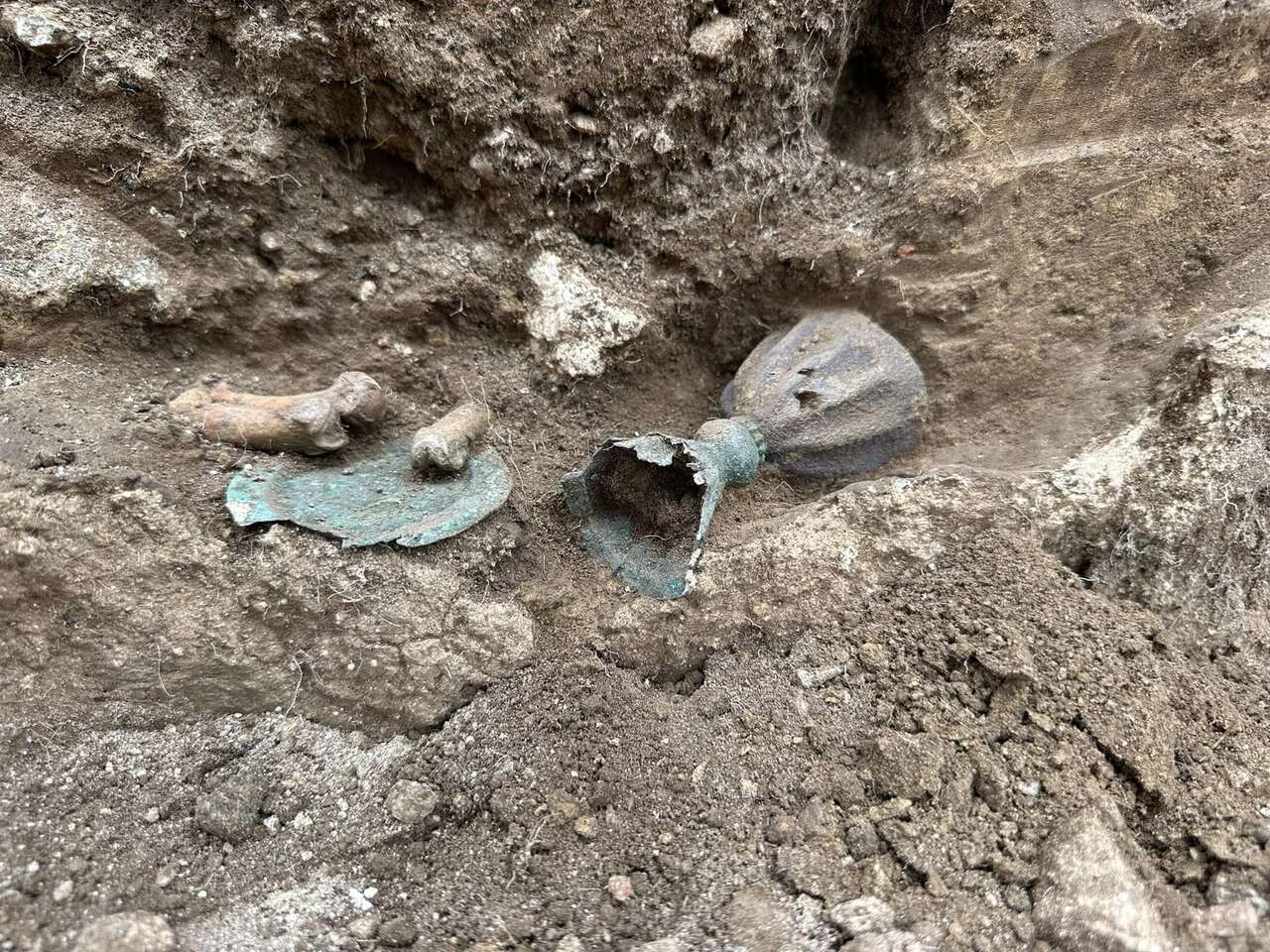
A silver communion set. Photo: Facebook/Nemzeti Régészeti Intézet
In October 2023, several details of the remains of the former Benedictine abbey church in Tomajmonostora were revealed during a trial excavation.
This year’s excavation unearthed a special find: a communion set which was held in hand at the time of the burial. The ceremonial vessels, consisting of a silver chalice and a wafer holder, are estimated to date from the 13th to 14th centuries. They were placed in the hands of a deceased person. In all likelihood, it is part of a burial, but further excavation is needed to obtain the exact results.
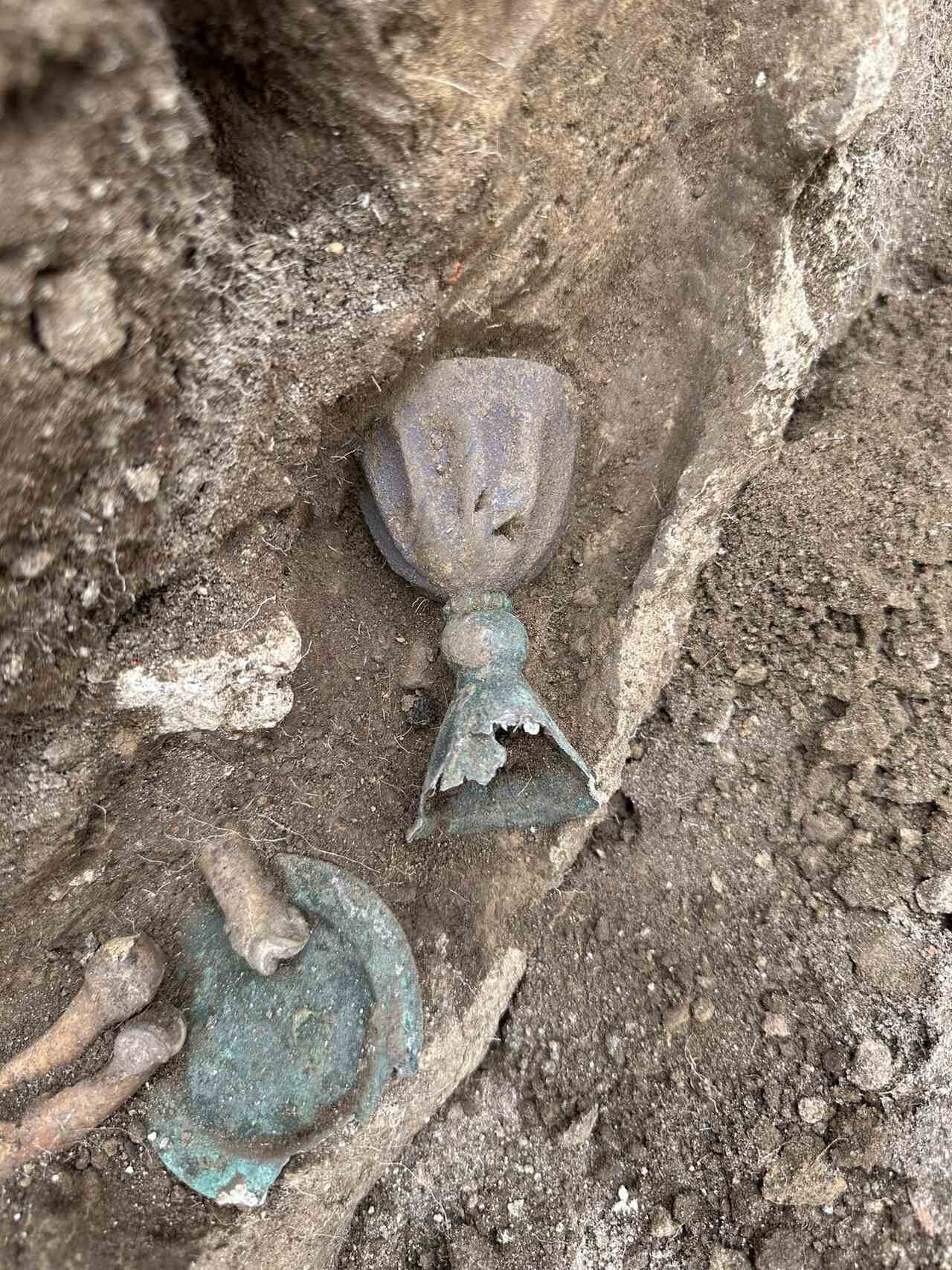
A silver communion set. Photo: Facebook/Nemzeti Régészeti Intézet
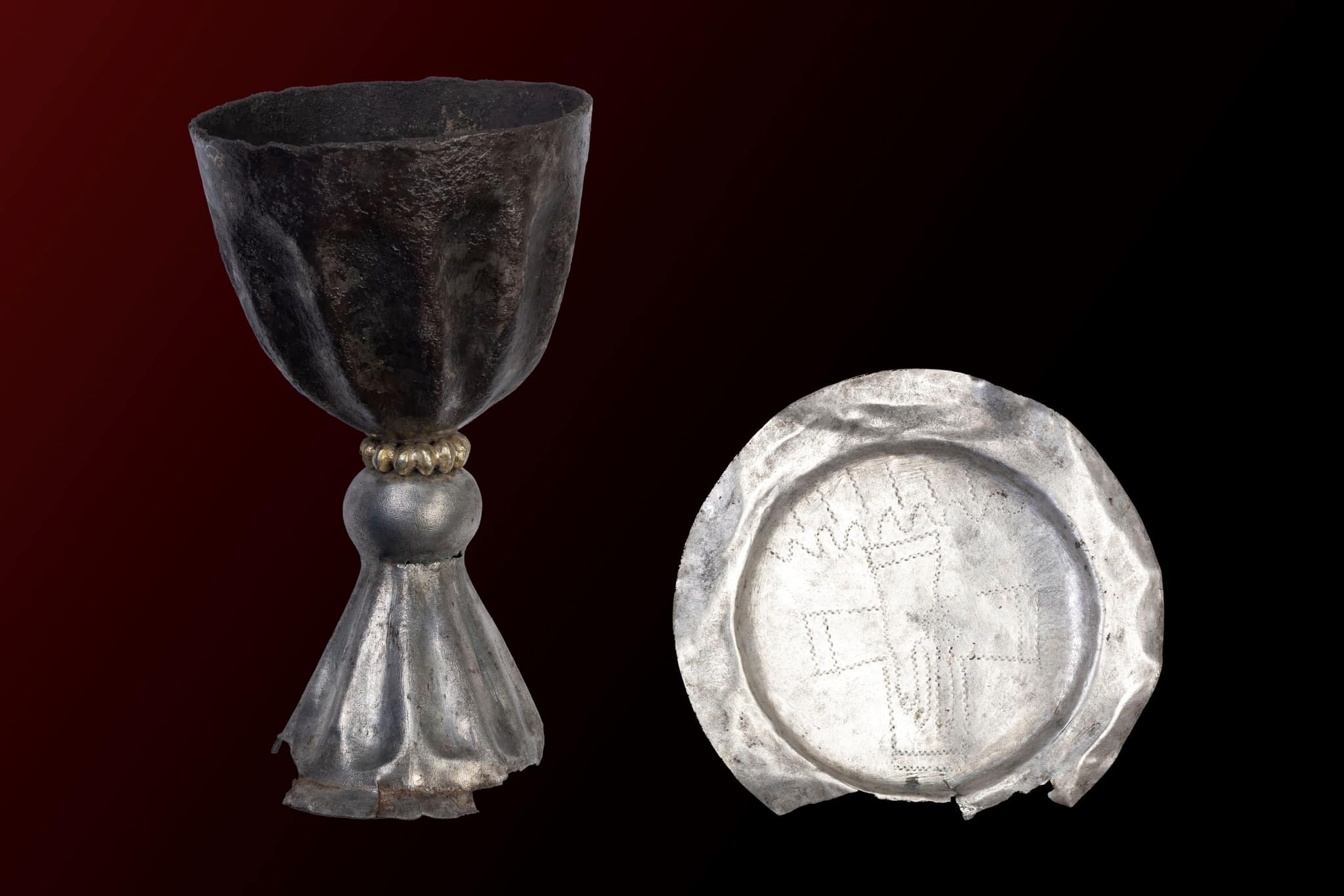
Photo: Facebook/Nemzeti Régészeti Intézet
Coins
The micro-regional research, including the excavation at Tomajmonostora, produced other outstanding results as well. The National Archaeological Institute of the Hungarian National Museum also pays special attention to the sites of key events in Hungarian history, their Facebook post reads.
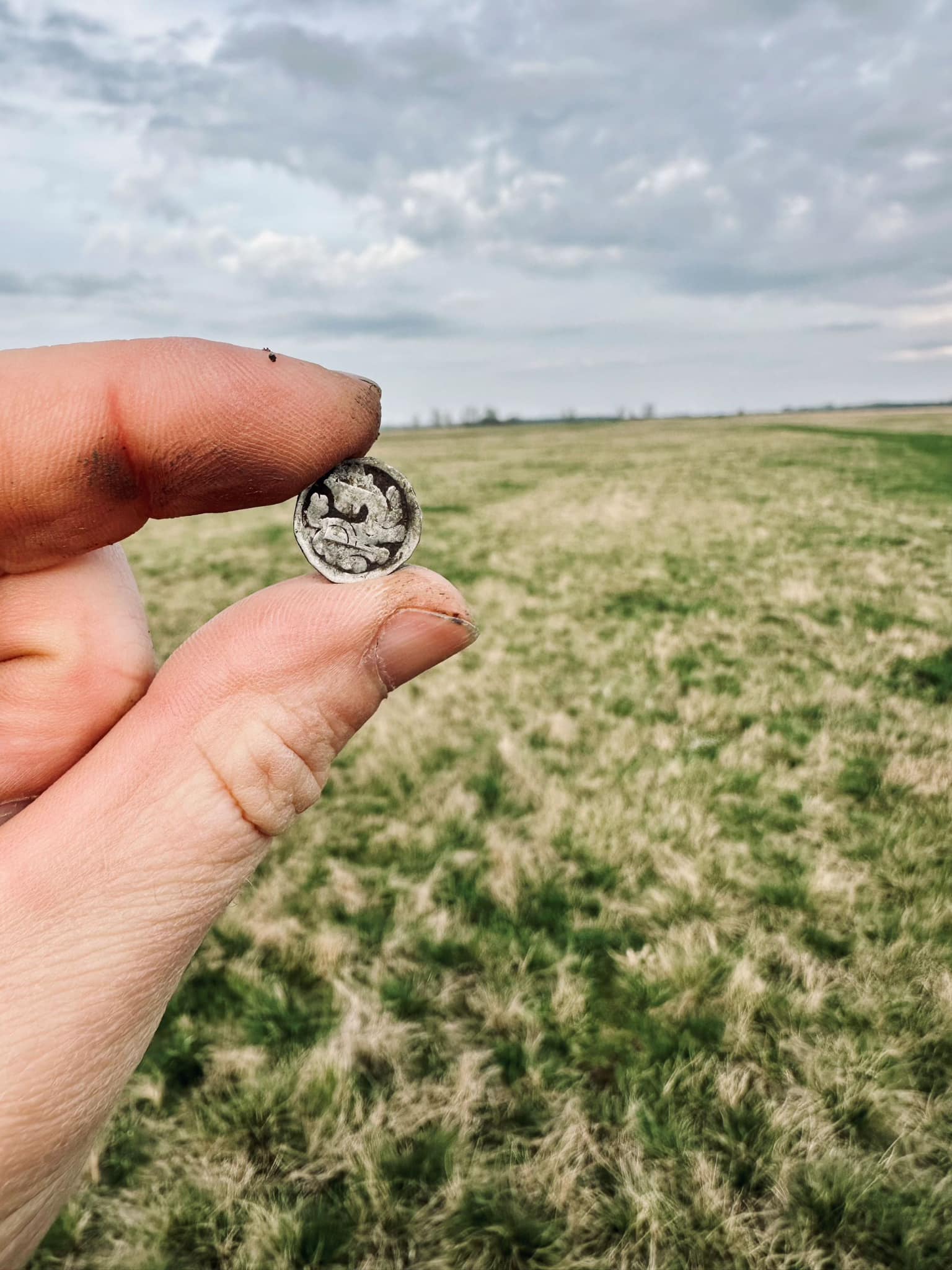
A fillér coin. Photo: Facebook/Nemzeti Régészeti Intézet
One stage of this is to identify the key areas of the battle of 1596 near Mezőkeresztes and to collect and interpret the artefactual material related to the battle.
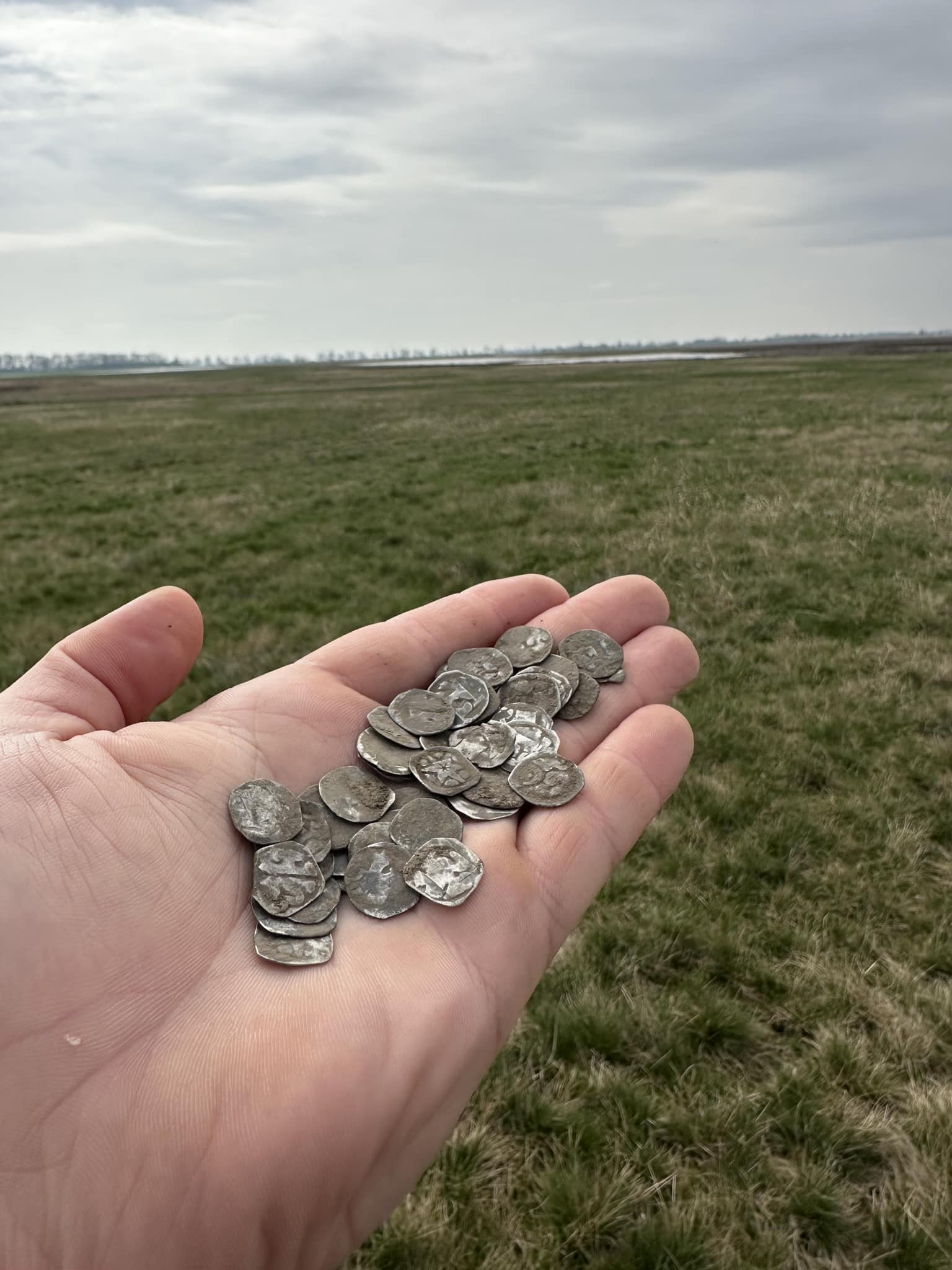
The Viennese fillér coins. Photo: Facebook/Nemzeti Régészeti Intézet
Here, the staff found a treasure trove of 70 silver coins of the Vienna fillér (bécsi fillér). The hidden treasure, which dates back to the 13th-14th centuries, was discovered during a search by volunteers.
Exceptional finds
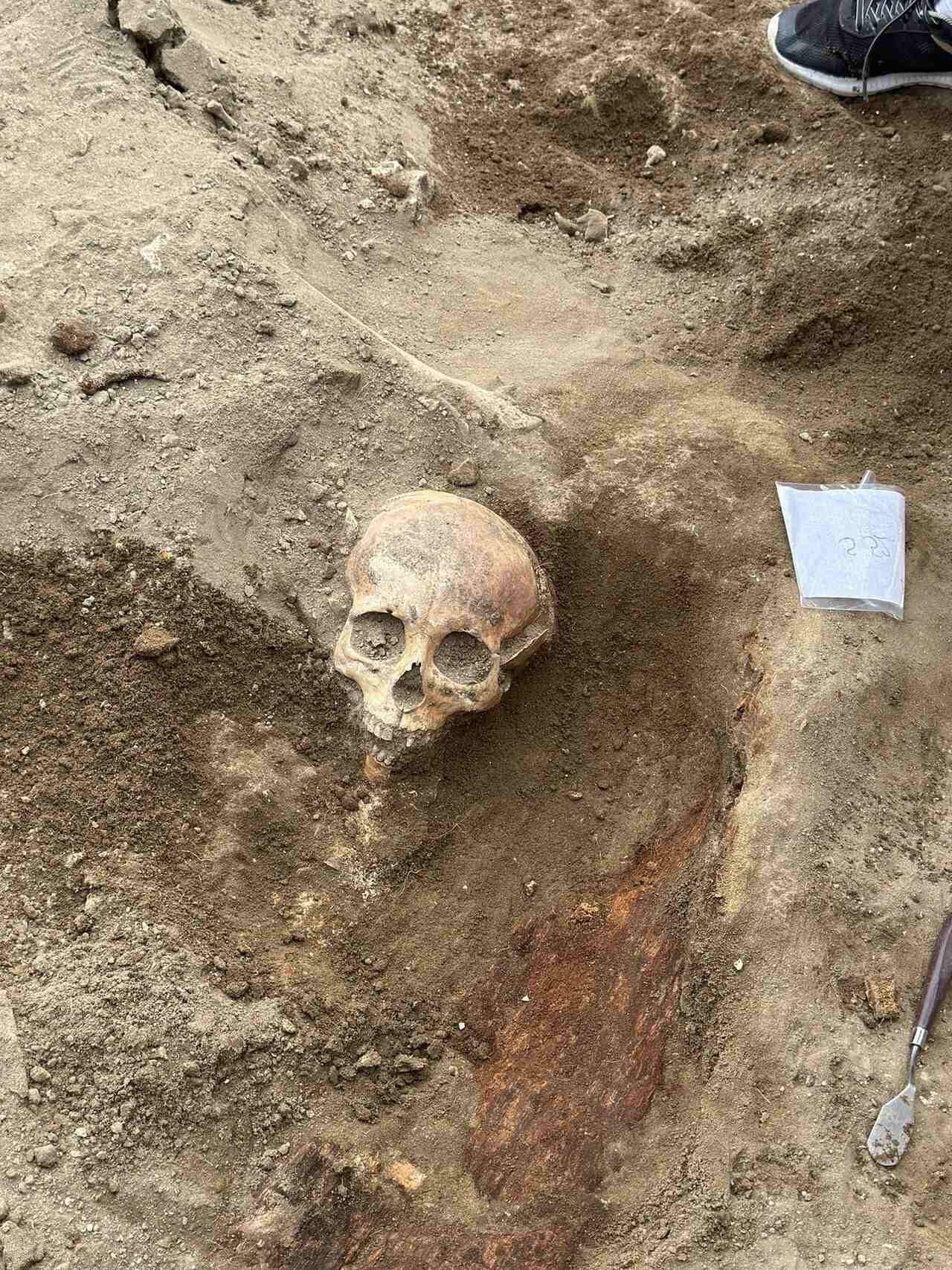
Photo: Facebook/Nemzeti Régészeti Intézet
“Of course, the region was inhabited before and after the event, so we are working with artefacts from several periods. These objects and their fragments date from prehistoric times to the present day,”
said archaeologist Gábor Bakos, head of the fieldwork.
Material analysis and restoration work on the finds is still ongoing at the National Archaeological Institute’s archaeometric laboratory.
Read also:
